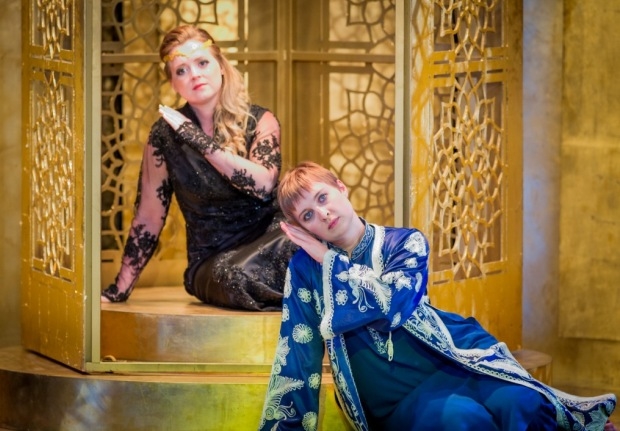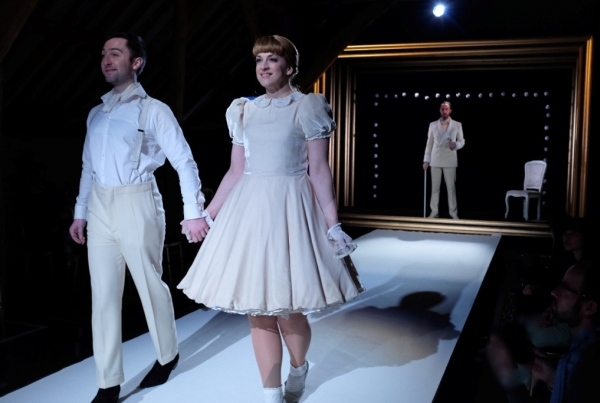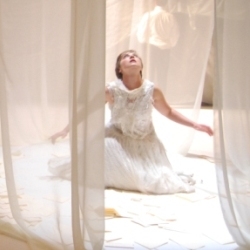Lakmé (Holland Park)

© Robert Workman
Is Lakmé any good? Not if its widespread neglect is anything to go by. This new production is the first in London since Opera Holland Park last staged it, and that was eight years ago. But don’t let its rarity value put you off. Derivative hokum though it is, those ravishing melodies carry it along and this crisp, hurtling account by Matthew Waldren and the City of London Sinfonia runs an electric charge through Delibes’ score.
Although it’s not particularly funny (except unintentionally, e.g. in having a hero named Gerald), Lakmé has the cut and cloth of an operetta rather than an opera. Accept it in that light and you’ll have a great time, especially in a staging that’s as well cast and sensitive as this new one by WhatsOnStage Opera Poll winner Aylin Bozok.
Bozok ‘s recent successes – Pelléas et Mélisande and Werther at the Arcola’s Grimeborn Festival; The Rake’s Progress for Bury Court Opera – all married a probing intelligence with intimacy and a thorough understanding of operatic form. Here, working with inferior material on a much bigger canvas, the young director has less-familiar challenges to confront, not least Delibes’ extensive writing for chorus. She doesn’t entirely avoid giving the impression that this is a bit of a nuisance. The 32 choristers are not granted a group identity, let alone individual characteristics, but are swathed in generic grey robes like a company of biblical lepers and semi-staged as a visual mass. That may help the production sidestep objectionable (to modern sensibilities) racial stereotyping but in purely theatrical terms it doesn’t amount to much.
'A ringing Bell Song'
Most else does, though, and character definition among the principals is the product of scrupulous thought. Andrew Dickinson (Bozok’s Rake) is disconcertingly convincing as Hadji, a ‘Slave of Brahma’, in the director’s reimagining of him as a holy fool, with Katie Bray (Charlotte in her Werther) checking on his ritual moves with practised patience.
Bray and the fast-rising soprano Fflur Wyn (as Lakmé) take flight in their famous barcarolle duet "Dôme épais le jasmin", a tune as beloved nowadays as Bizet’s corresponding male showstopper and one that Delibes milks for all its worth. At OHP‘s second performance Wyn was announced as being so unwell that she was unlikely to finish the evening, yet she more than got through it and went on to sing a ringing Bell Song.
Robert Murray, fresh from courting Mabel in ENO‘s Pirates of Penzance, tries his luck again, this time as Lakmé's suitor, Gérald. The tenor is in excellent voice these days and his account of "Ah! viens dans la forêt profonde" was unwavering and passionate. Secondary roles are well defined too, with Fiona Kimm, Maud Millar and Fleur de Bray cleverly differentiated from the ‘foreign’ brigade through the easy sway of their Englishness.
It’s a shame bass-baritone David Soar wasn’t on hand to sing the sobersides priest Nilakantha, but apparently he owed Glyndebourne one last Escamillo. These summer festivals do collide into one another rather.













